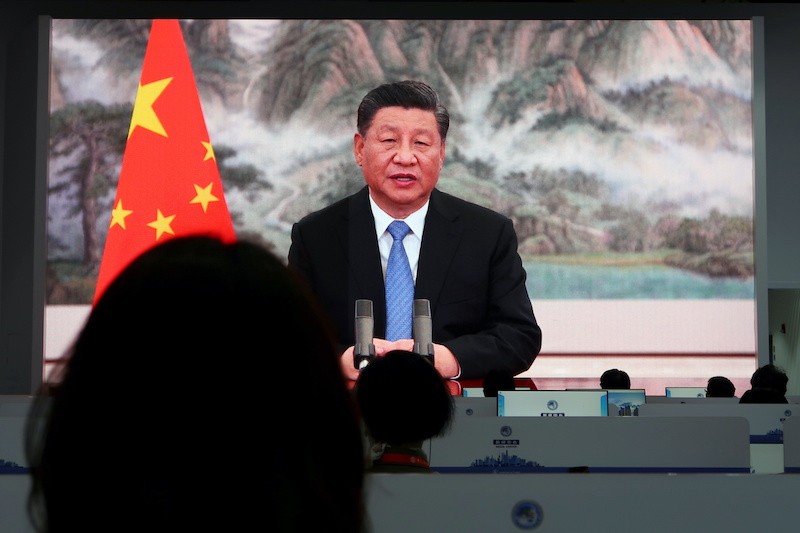The United States has accused China of manipulating global media through censorship, data harvesting and covert purchases of foreign news outlets.
A report by the US State Department warned on Thursday that the trend could lead to a “sharp contraction” of freedom of expression around the world.
The report said that Beijing spends billions of dollars annually on information manipulation efforts, including by acquiring stakes in foreign media through “public and non-public means”.
It also sponsored online influencers and secured distribution agreements that promote unlabelled Chinese government content, it said.
ALSO SEE: China Vows Anti-Corruption Crackdown on Financial Sector
Global footprint of Chinese state media expanded
The Chinese Embassy in Washington did not immediately respond to a request for comment.
In July, Beijing responded to a Nato communique that accused it of coercive policies and spreading disinformation by saying the statement disregarded basic facts, deliberately discredited China and distorted its policies.
The US report comes amid controversy over China’s efforts in recent years to expand the global footprint of its government-controlled media, especially as geopolitical competition between Beijing and Washington has intensified.
Chinese leaders have sought to combat the negative images of China they feel are spread by world media.
Citing public reports and “newly acquired government information”, the US State Department’s Global Engagement Centre said Beijing had created its own information ecosystem by co-opting foreign political elites and journalists.
It had also invested in satellite networks and digital television services in developing regions that prioritise Chinese state-backed media content.
Chinese data harvesting overseas “has enabled Beijing to fine-tune global censorship by targeting specific individuals and organisations”, it said.
“Unchecked, Beijing’s efforts could result in… a sharp contraction of global freedom of expression,” the report said.
Despite unprecedented resources devoted to the campaign, Beijing had encountered “major setbacks” when targeting democratic countries because of local media and civil society pushback, according to the report, which was produced under a US congressional mandate to detail state information manipulation.
‘An uneven influence campaign’
The report follows a book by US author Joshua Kurlantzick on ‘Beijing’s Global Media Offensive‘, published last year by Oxford University Press, which put a spotlight on “China’s uneven campaign to influence Asia and the world”.
Kurlantzick, who is a fellow with the US Council on Foreign Relations, said China’s Xinhua state news group has signed content-sharing agreements with local news outlets all over the world, who use its content and translate it into local languages.
In a recent interview, he said the Chinese Communist Party’s message is spread globally via Chinese language publications around the world and that “those outlets have been almost exclusively taken over by Chinese state-linked companies or by individuals who have shifted the editorial coverage to basically pro-Beijing, non-independent coverage.”
He said some of the ‘soft power moves’ China is making currently are similar to US propaganda during the Cold War, whereas state media outlets in the US and western nations generally have editorial independence now and are free to criticize their own government’s policies, unlike China’s state media.
- Reuters with additional reporting and editing by Jim Pollard
ALSO SEE:
China Bans Top Nomura Investment Banker From Exiting Mainland
China Bankers to Shun ‘High-End Taste’ Fearing Regulatory Ire
Drop in Hydropower Forcing China and India to Use More Coal
China Ramping up Its Nuclear Power Capacity – Xinhua
























